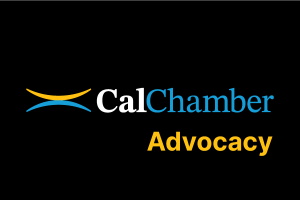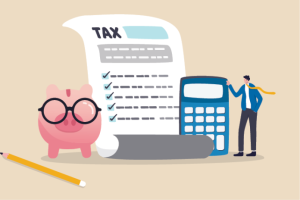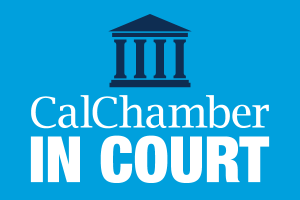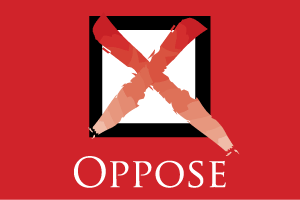
Goals & Issue Summaries
Goals
Monitor legislation and regulatory activity to ensure that California tax laws are fair and can be administered easily.
Review state spending plans to make certain that economy and efficiency are the primary goals of government.
Income Taxes
Position: While California still offers ample economic opportunity, policymakers must remain cognizant and avoid abusing those that provide the state’s General Fund with large contributions. High-wage earners provide a majority of the General Fund with their personal income taxes. The state personal income tax rate has increased to14.4% for earners making more than $1 million, which is by far the highest in the country.
The state must avoid incentivizing a California exodus, driving away large contributors to the state budget. Increasing personal income taxes or imposing additional taxes will further harm California’s economy and depress business growth. The Legislature should avoid imposing new taxes and instead focus on limiting obstacles to the state’s economic growth.
Tax Tools for Business
Position: The California Chamber of Commerce will continue to support the restoration of the NOL deduction and lifting the cap on business tax credits. Tax credits and deductions play a vital role for employers in generating employment, expanding operations, and increasing economic output. These benefits also serve the state’s economic needs because they create multiple streams of additional tax revenue and stimulate added investment and development within the state.
Taxing the Digital Frontier
Position: Implementing new taxes on digital advertising will result in interminable litigation for the state and likely affect California’s small advertisers when the costs of the tax are passed on to them. The Legislature should avoid imposing new taxes and instead focus on limiting obstacles to the state’s economic prosperity. This includes addressing housing shortages and high housing prices, unaffordable cost of living conditions, and persistently highest-in-the-nation gas prices.
Major Victories
In 2018, defeated targeted tax proposals on high earners (AB 2351) and contractors (AB 2560).
Won an extension of job creating film tax credits in 2018. Continued for another five years the program bringing more film and television production to the state (SB 871, SB 951, AB 1734).
Stopped bills in 2017 giving local governments new authority to enact special taxes, including parcel taxes, by lowering from two-thirds to 55% the vote required for approving new taxes (ACA 4 and SCA 6); multiple tax increases on employers (SB 567); plus targeted taxes on sweetened beverages (AB 1003), opioids (AB 1512), high earners (AB 1356), contractors (AB 43), alcohol (AB 479) and retailers (ACA 11).
Reducing Burden on Taxpayers. Signed into law in 2016 with CalChamber support were bills to reduce burdens on disaster victims, maintain fairness in computing interest, ensure timely parcel tax notices, and conform state filing dates for tax returns with federal dates (AB 1559, AB 2201, AB 2476, AB 1775).
Blocked tax increases in 2016 that would have given local governments new authority to enact special taxes, including parcel taxes, by lowering from two-thirds to 55% the vote required for approving new taxes (ACA 4); blocked a targeted tax on certain beverages (AB 2782); and blocked a split roll property tax (SCA 5).
Preventing Tax Increases in 2015:
- Giving local governments new authority to enact special taxes, including parcel taxes, by lowering from two-thirds to 55% the vote required for approving new taxes (ACA 4).
- Targeted tax on certain beverages (AB 1357).
- Increased tax rate for certain companies (SB 684).
- Split roll property tax (SCA 5).
Stopping Hidden Taxes. Sponsored the 2010 winning campaign for Proposition 26, clearly defining fees and taxes at the state and local levels so that governments can’t pass real taxes with a simple majority vote.
Stopping Multiple Tax Proposals
- Stopped economic development barriers in 2014, such as a split roll parcel tax for school districts (SB 1021); increasing corporate tax rate by up to 15%, with another 50% increase thereafter (SB 1372);
- Lower vote requirement for tax increases stopped: Seven constitutional amendments in 2014 proposed giving local governments new authority to enact special taxes, including parcel taxes, by lowering from two-thirds to 55% the vote required for approving new taxes (SCA 4, SCA 7, SCA 8, SCA 9, SCA 11, ACA 3, ACA 8).
- Stopped a plan in 2014 to levy an oil severance tax (SB 1017) and to place a carbon tax on gasoline at the pump (SB 1156).
- Blocked barriers to economic recovery in 2013, such as a split roll parcel tax that would have permitted school districts to assess commercial property at a higher rate than residential property (AB 59); and a split roll change of ownership bill that would have led to more frequent reassessment of commercial property (AB 188); and in 2012, a proposal creating inappropriate wage liens (AB 2517), and a plan to repeal the net operating loss (NOL) carry back deduction (AB 2408).
- Blocking new barriers to economic development in 2011, such as a proposal requiring tax credits to sunset (SB 508); a “split roll” property tax (AB 448); and a multitude of hidden and specific tax hike proposals (AB 832, AB 1130, AB 1239, SB 237, SB 535, SB 653, SBX1 23); and 2010 proposals such as tax hikes on companies that invest in property and jobs (AB 1935, SBX6 18), targeted tax increases (AB 2100, SB 1210, ACA 22), and proposals creating uncertainty about the future availability of investment-encouraging tax credits (AB 2171, AB 2641, ACA 6, SB 1272, SB 1391, SBX6 20).
- Aggressive campaigning and advocacy by CalChamber-led coalitions in 2009 dampened enthusiasm for tax increases and new taxes, including targeted tax increases that would have exacerbated state budget problems and hurt the targeted industries; a “split roll” proposal to tax business properties at a higher rate; an energy tax that raises the price of gasoline and California-produced crude oil; and an onerous new requirement for business and government to withhold taxes on payments to independent contractors.
- Block legislation levying a climate change tax increase in 2009 (AB 231, AB 1405, SB 31)
Improving Tax Process
- Won approval of five job creator proposals in 2014 that help keep California in the competition for high-value jobs
in aerospace manufacturing (AB 2389, SB 718); film and television productions (AB 1839); spaceflight transportation (AB 777); and employer investment in general—restoring full funding to the California Competes Tax Credit Program (AB 1560). - Supported voter-approved Proposition 2 in 2014,
forcing the state to put money in a constitutionally protected reserve fund that can be used to pay down debt and protect schools, public safety and other vital services from severe cutbacks during economic downturns. - Won approval in 2013 of two job creator bills that help resolve critical problems for small business and small business investors: protecting small businesses from drive-by Proposition 65 lawsuits by providing a 14-day right to cure for allegations of failure to post required warnings (AB 227); and created a dependable tax environment by repealing the Franchise Tax Board decision to retroactively tax small business investors who relied in good faith on the law when investing in California and using a tax incentive that subsequently was found unconstitutional (AB 1412).
- Supported proposal in 2010, reducing complexity and waste in tax reporting and administration by conforming many California tax provisions to recent changes in federal tax law, including a conformity provision giving financial relief to troubled borrowers by excluding debt forgiven by a lender from a borrower’s taxable income (SB 401).
- Backed urgency legislation in 2009 improving taxpayer confidentiality (AB 192), reducing administrative delays in the reassessment process (SB 816) and simplifying sales tax compliance for non-profits (AB 1486).
Promoting E-Commerce
- Stalled proposals in 2009 harming California online marketplaces, Web-service providers, and websites of small businesses and nonprofits by changing California’s sales tax law in a way that will encourage out-of-state retailers to instead do business with out-of-state counterparts (AB 178, ABX3 27).

Recent News
Taxation Bills
Committees
Staff Contact
 Alexis Rodriguez
Alexis Rodriguez
Policy Advocate
Health Care, Taxation




